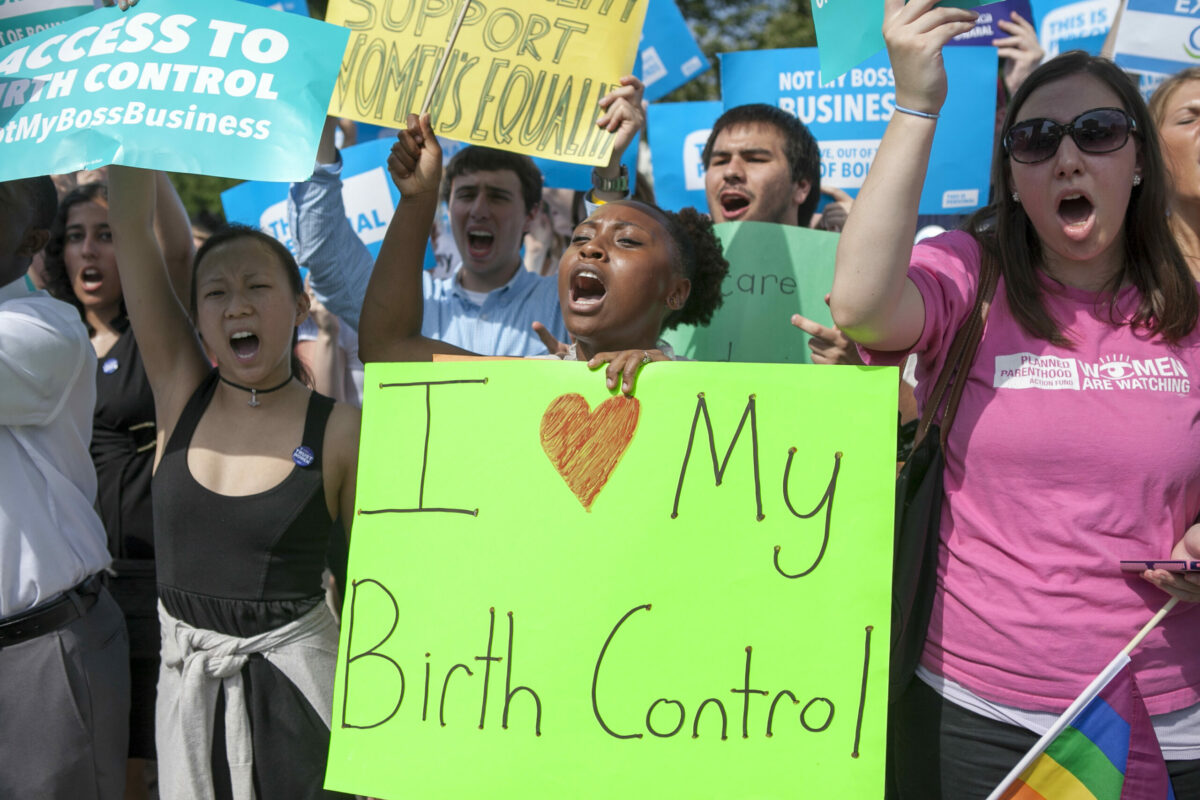As uncertainty grips the nation following the possibility of the Supreme Court overturning Roe v. Wade this summer, some Republican politicians are already moving to restrict access to birth control next.
Abortion is still legal, though the medical procedure is difficult to access in many states. With the constitutional right to abortion currently under threat, abortion opponents are building on the momentum with the false argument that certain forms of birth control, especially emergency contraceptives, work as abortion medication.
Contraception is already difficult to access in states that choose to provide little or no state funding for family planning, especially for low-income people, according to Rabia Muqaddam, a senior staff attorney with the Center for Reproductive Rights.
“If Roe v. Wade falls, other rights long understood to be protected within the right to privacy could be in jeopardy, including decisions about whether to use contraception,” Muqaddam told the American Independent Foundation. “Our access to essential health care is in very real peril.”
Jessica Arons, a senior policy counsel for reproductive freedom with the American Civil Liberties Union, pointed out that the policies to ban abortion and restrict access to birth control will be most harmful to people of color, as well as low-income people and other groups already facing discriminatory barriers to health care.
Arons added that after striking down Roe, the Supreme Court’s conservative majority could use the new precedent to roll back LGBTQ rights including marriage equality.
“We know those pushing to overturn Roe v. Wade won’t stop there,” Arons told the American Independent Foundation. “Despite Justice Alito’s claims to the contrary, his draft opinion calls into question decades of precedent that draws a direct line from the right to abortion to the right to contraception to the right to marry who we love.”
The Court’s 1965 decision in Griswold v. Connecticut protected a married couple’s right to buy and use contraceptives without government restrictions. That ruling was later extended to non-married individuals in 1972. If Roe is struck down, conservative officials could move to ban access to contraceptives next. In March, Sen. Marsha Blackburn (R-TN) called the Griswold ruling “constitutionally unsound” in comments criticizing Supreme Court nominee Judge Ketanji Brown Jackson.
Republican lawmakers and candidates in other states have already started voicing their support for potential contraceptive bans. Earlier this month, Mississippi Gov. Tate Reeves declined to rule out the possibility of a future contraceptive ban, and only said, “That is not what we are focused on at this time.”
Last week, Republican state lawmakers in Louisiana advanced a bill sponsored by state Rep. Danny McCormick that would have classified abortion as homicide, defined an “unborn child” as “an individual human being from fertilization until birth,” and defined “life” as starting at fertilization of an embryo. The bill would have criminalized certain types of birth control, including Plan B contraceptive pills and intrauterine devices (IUDs). The bill failed to pass the Louisiana House of Representatives after anti-abortion groups in the state opposed the bill, saying it was “not consistent with their pro-life policies.”
Blake Masters, a leading Republican candidate for U.S. Senate in Arizona, said on his campaign website that he will only vote to confirm federal judges “who understand that Roe and Griswold and Casey were wrongly decided and that there is no constitutional right to abortion.”
In Michigan, Republican attorney general candidate Matthew DePerno criticized Griswold during a February debate. “This case, much like Roe v. Wade, I believe, was wrongly decided because it was an issue that trampled upon states’ rights,” DePerno said. “It was an issue that should have been left up to the states.”
Michigan’s Democratic Attorney General Dana Nessel responded to DePerno’s comments on Twitter, stating, “The party of ‘limited government’ wants direct involvement in everything you do in the bedroom. The Handmaid’s Tale is no longer dystopian fiction.”
In Idaho, House State Affairs Committee Chair Brent Crane said he would support holding hearings on legislation banning Plan B and IUDs. On May 12, Jacky Eubanks — who is running for Michigan state legislature with former President Donald Trump’s endorsement — said she would “absolutely” vote to ban contraceptives.
“Would that ever come to a vote in the Michigan state legislature, and if it should, I would have to side with it should not be legal,” Eubanks said in an interview with Church Militant, a right-wing media outlet based in Detroit. “I think it gives people the false sense of security that they can have consequence-free sex. And that’s not true! Sex ought to be between one man and one woman in the confines of marriage … and open to life. Absolutely.”
While the momentum for restricting contraception access seems to be building among the Republican Party lawmakers and candidates, Democrats in some states have worked to enshrine residents’ rights to reproductive health care. In 2020, five states — Colorado, New Jersey, Vermont, Virginia, and West Virginia — enacted legislation that expanded access to contraception, HIV prevention services, or infertility care, according to the Guttmacher Institute.
In some states, it is legal for pharmacists to prescribe contraceptives to patients. Currently, 17 states and the District of Columbia allow pharmacists to provide contraceptive care in some form. As of 2020, Vermont permits pharmacists to prescribe self-administered hormonal contraceptives including the pill, patch, and ring and requires insurers to cover the treatments.
Rachel Fey, Power to Decide’s vice president of policy and strategic partnerships, said that whenever there is a barrier put up to reproductive health care, people of color face the greatest impact.
“Contraception cannot be a replacement for abortion access,” Fey told the American Independent Foundation. “But the attacks on abortion are also extending to contraception, and we need to defend all of it. All of it is critical reproductive health care.”
Published with permission of The American Independent Foundation.
